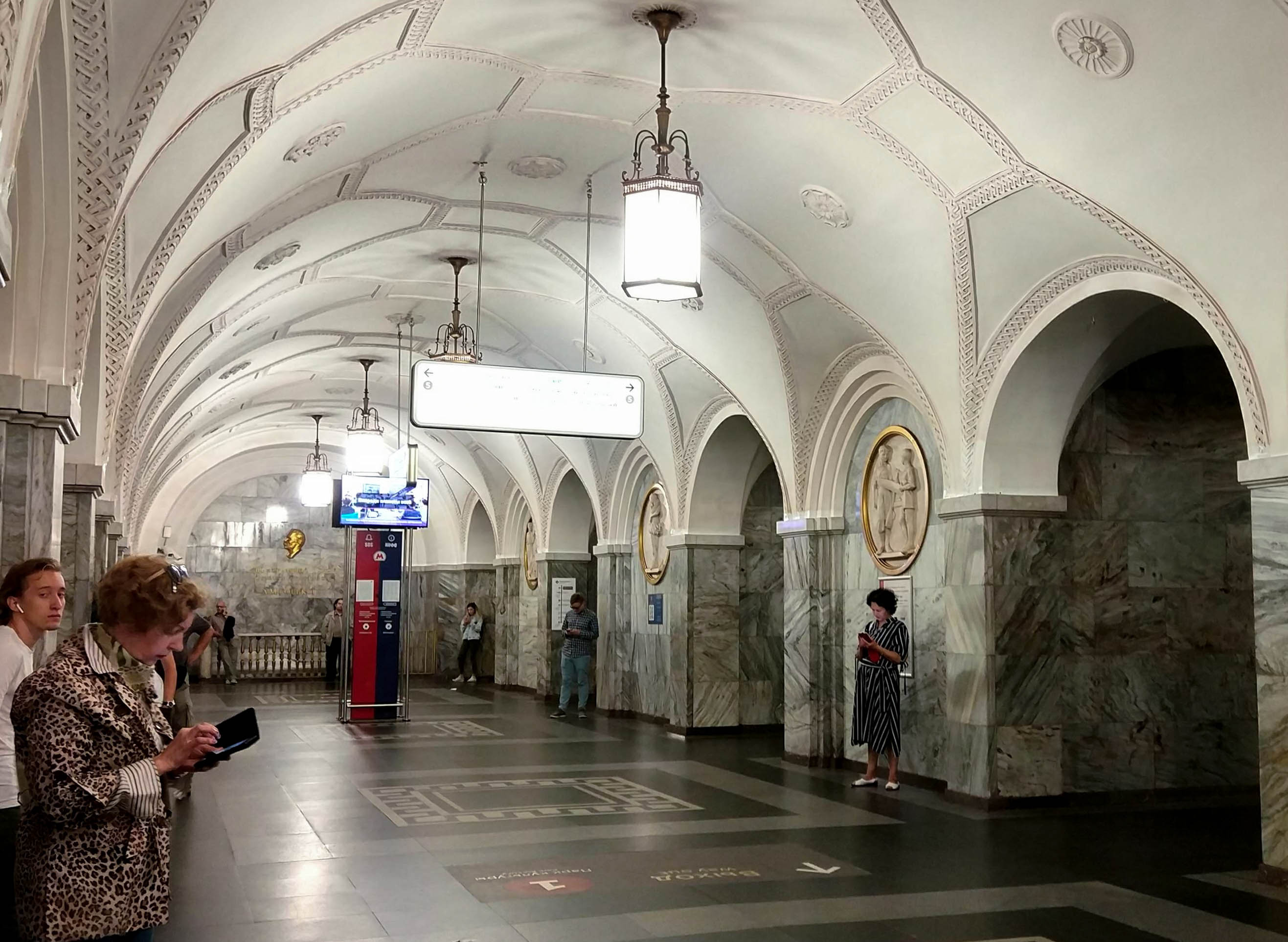Moscow
I´ve spent 2 years in Moscow (2008-2010) when studying at the university and before moving to Europe. Needless to say, a lot has changed since that time in Russia but especially in Moscow.

It is common to say here that “Moscow is not Russia”, and even though every capital does not represent the country well enough, it is especially true in Russia, where the difference between the welfare in Moscow and regions is so drastic that is hard to believe it’s possible in one country.
Due to huge investments, Moscow develops very fast and changes from one year to another. What I like about this city is its diversity and capacity to fit in different epochs and styles, capitalism is befriended here with the socialism and the west meets east.
Even though I stayed in Moscow for 8 days I barely had time to see the city. I spent 95% of the time at Belorusskaya station area which is now one of the business centers of Moscow.
Sometimes I caught myself surprised by seeing the signs in Russian because for seconds I actually felt as if I was in Europe, so familiar were the surroundings, people’s clothing style and restaurants around (Starbucks, Paul etc.). If Moscow is not Russia, I would say that Belorusskaya is not Moscow. Only the beautiful white Orthodox church clearly reminded me of where I am now.
Once I had free time I could not wait to go down to the metro (subway) because metro is an integral part of Moscow. It is a museum of socialist art that happens to be not only beautiful but also functional and extremely efficient.
When I was living here I couldn´t appreciate enough how beautiful it actually is. Rushing in the morning and coming back exhausted in the evening, you don’t have time to pay attention to the details of the metro. But as a tourist, I can finally do it.
As you can see in the picture below, every person has a smartphone or any kind of device to entertain himself/herself. It is very typical for Moscow and especially for the metro. It is difficult to catch the eye of anyone here, so distracted people are, deep into themselves and their devices or books.

Tula
Once my business travel in Moscow was over, I took a train to Tula – my hometown.
Tula is only 180 km away from Moscow but I took the sleeper train because this was the only available fast option for the time I was traveling.
I will cover the Russian sleeper train in the other post about Transsiberian trip (I have no idea when it will be out but I’ll put a link here).
After arriving in Tula I went to the dacha.
Dacha is a very typical Russian or even more precisely Soviet phenomenon, is a seasonal (summer) house located in the countryside. Normally, dachas do not have proper infrastructure except for the electricity – so no heating system, no gas, no water. If you are lucky there is a water spring with clean water.

The big advantage of dacha is the vegetable garden where you can plant and later consumer as bio and organic vegetables as you wish (depending on your effort investment). My grandma (babushka) takes care of the garden using purely old style methods without pesticides and only with natural fertilizers so that we can enjoy truly organic vegetables.
I grew up eating veggies from dacha all year round (fresh vegetables and herbs in the summer) and preserved ones in the other seasons, without realizing how lucky I actually was and before organic was even a “thing”.
Interesting enough, even though Russia has already moved into the era of supermarket out of season tasteless vegetables, the farmers’ markets with bio produce are only emerging but in between in Russia, you can find those babushkas on the street selling vegetables and fruits from dacha of a very good quality and extremely cheap.
I don’t think that this phenomenon will continue to exist in Russia for a long time from now on.
Time to go back to Germany.
















